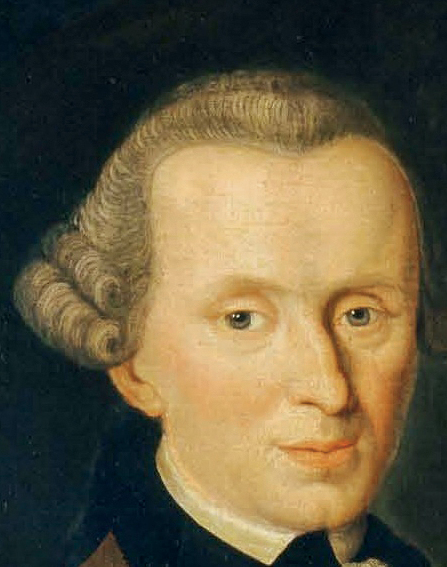More languages
More actions
Immanuel Kant | |
|---|---|
 | |
| Born | 22 April 1724 Königsberg, Prussia |
| Died | 12 February 1804 Königsberg, East Prussia |
| School tradition | Idealism Empiricism |
| Nationality | German |
Immanuel Kant (22 April 1724 – 12 February 1804) was an idealist German philosopher. Engels criticized Kant's concept of a "thing-in-itself" which had no internal contradictions.[1] However, Kant's work Perpetual Peace criticized British and French slavery and shared some views with the Jacobins.[2]
Kant proposed philosophical dualism and tried to unite rationalism and empiricism by saying the material and ideal worlds both exist independently of each other. He said that humans can never fully understand the material world because of their subjective viewpoint and can only investigate the world in terms of quantity, quality, necessity, and other metaphysical categories.[3]
References
- ↑ “The most telling refutation of this as of all other philosophical crotchets is practice — namely, experiment and industry. If we are able to prove the correctness of our conception of a natural process by making it ourselves, bringing it into being out of its conditions and making it serve our own purposes into the bargain, then there is an end to the Kantian ungraspable “thing-in-itself”. The chemical substances produced in the bodies of plants and animals remained just such “things-in-themselves” until organic chemistry began to produce them one after another, whereupon the “thing-in-itself” became a thing for us — as, for instance, alizarin, the coloring matter of the madder, which we no longer trouble to grow in the madder roots in the field, but produce much more cheaply and simply from coal tar. For 300 years, the Copernican solar system was a hypothesis with 100, 1,000, 10,000 to 1 chances in its favor, but still always a hypothesis. But then Leverrier, by means of the data provided by this system, not only deduced the necessity of the existence of an unknown planet, but also calculated the position in the heavens which this planet must necessarily occupy, and when [Johann] Galle really found this planet [Neptune, discovered 1846, at Berlin Observatory], the Copernican system was proved.”
Friedrich Engels (1886). Ludwig Feuerbach and the End of Classical German Philosophy: 'Materialism'. Progress Publishers. [MIA] - ↑ Domenico Losurdo (2011). Liberalism: A Counter-History: 'Crisis of the English and American Models' (pp. 178–179). [PDF] Verso. ISBN 9781844676934 [LG]
- ↑ Hamid Alizadeh (2020-08-27). "In Defence of Hegel" Socialist Appeal. Archived from the original on 2022-12-01.
